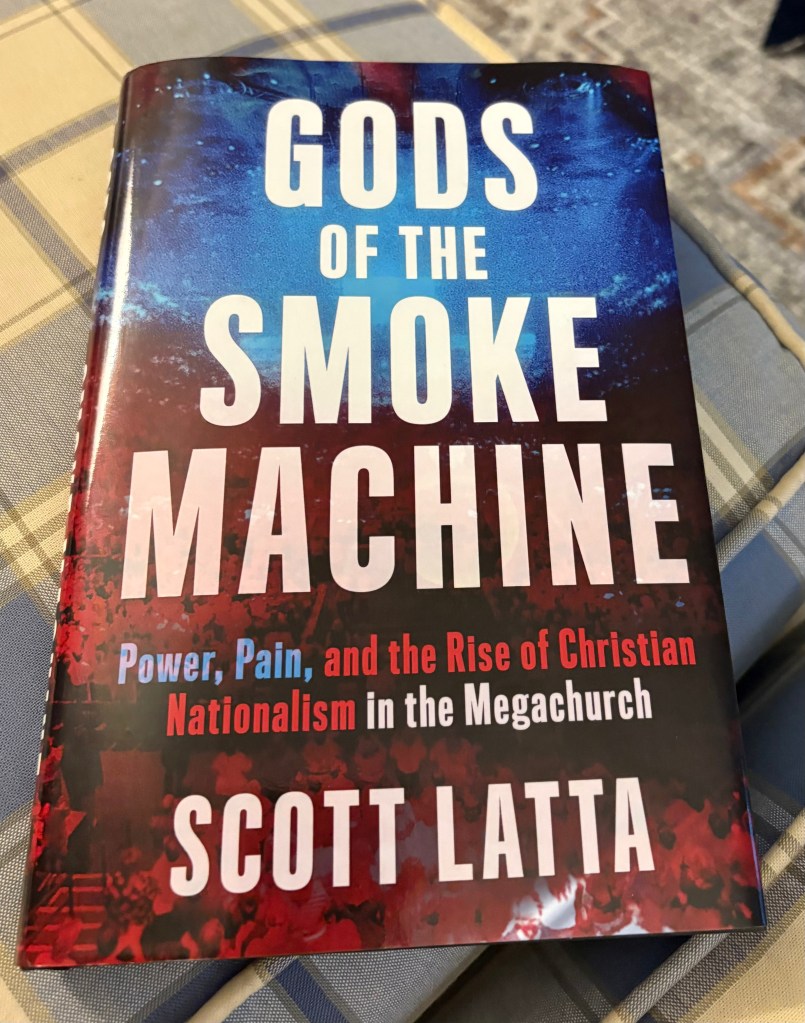Here I sit in the cold. The ice is covering the ground. My truck is iced in and the roads are impassable. There will be no gathering of the body of Christ at Haughton Methodist Church because no one can get there. Even so, we will worship. Worship is not limited to the gathering of the body of Christ, though it is best when the body is gathered.
I thank the Lord that I still have electricity. There are many in the region who are not as blessed. That will be my starting place for worship this morning. That I still have electricity makes it possible for me to post a blog this morning. I suppose writing is a mode of worship, as well.
I’m reflecting this morning on the lectionary passage for the third Sunday after the Epiphany (that’s today!) as part of my worship.
12 When Jesus heard that John had been put in prison, he withdrew to Galilee.13 Leaving Nazareth, he went and lived in Capernaum, which was by the lake in the area of Zebulun and Naphtali— 14 to fulfill what was said through the prophet Isaiah:
15 “Land of Zebulun and land of Naphtali,
the Way of the Sea, beyond the Jordan,
Galilee of the Gentiles—
16 the people living in darkness
have seen a great light;
on those living in the land of the shadow of death
a light has dawned.”
17 From that time on Jesus began to preach, “Repent, for the kingdom of heaven has come near.”
18 As Jesus was walking beside the Sea of Galilee, he saw two brothers, Simon called Peter and his brother Andrew. They were casting a net into the lake, for they were fishermen. 19 “Come, follow me,” Jesus said, “and I will send you out to fish for people.”20 At once they left their nets and followed him.
21 Going on from there, he saw two other brothers, James son of Zebedee and his brother John. They were in a boat with their father Zebedee, preparing their nets. Jesus called them, 22 and immediately they left the boat and their father and followed him.
23 Jesus went throughout Galilee, teaching in their synagogues, proclaiming the good news of the kingdom, and healing every disease and sickness among the people. (Matthew 4:12-23 NIV)
Rich stuff, right there! Prophecy. Healings and miracles. Repentance. Wow! What grabs my attention most this morning is “calling.” I see three distinct callings in this passage: the call to faith, the call to discipleship, and the call to ministry.
The Call to Faith
By Matthew’s account, this is the beginning of Jesus’ ministry. He’s been baptized by John and led into the wilderness to be tempted for forty days by Satan. He gets the news that John the Baptist has been arrested, so he heads back to civilization to begin his ministry. It is as Jesus begins his ministry that I find the first calling on a person’s life—the call to faith.
The call to faith is the call to change our mind, and it is the call that all of us, at some point, must answer. Literally, Jesus’ first word in ministry in verse 17 is “Repent, for the kingdom of heaven has come near.”
The New Living Translation says, “Turn from your sin and turn to God.” That is the translator’s interpretation of the meaning of repent. The word means “to change your mind,” and Jesus begins ministry with the call for everyone who hears his voice to change his/her mind. It is a call to turn from sin. It is a call to turn from unbelief to belief. It is a call to turn from death to life.
It’s not vogue to talk about sin. After all, we’re all sinners, and we’re not supposed to judge, and if we talk about sin, we might get too close to judging and we’re good Methodists, so we don’t want to do that. Of course, the alternative is also a possibility. We don’t really think we’re sinners. Culture and modern psychology teach us that we’re good people. It’s the “I’m okay, you’re okay” mentality that makes us say we don’t need to repent…we don’t need faith. Or, we think we’re not as bad a sinner as someone else.
When we think of sin, we think of the Big 10—murder, stealing, lying, adultery, covetousness, those types of things. Or, we think rape, or child abuse, or some other crime that’s easy to acknowledge is wrong. Mass shooters and child rapists? Yup, they are sinners. Me? Naw, I’m not a sinner. I’m a (wait for it…) good person!
Sin, though, as the Bible defines it is anything that misses the mark. That’s what the word means—missing the mark. That image should never diminish the seriousness of sin because the reality is there was a mark and we missed it. We miss the mark in so many areas of our everyday life. Surely, we’re not murdering, or stealing, or lying (at least I hope we’re not), but what about the small things that also reflect on our character?
I think about what our Catholic brothers and sisters have called the seven deadly sins—greed, gluttony, pride, anger, lust, sloth, and envy. The belief is that at the heart of all sin lies one of these. I can think of the times in my life I’ve been greedy, and let’s not even get into gluttony knowing how much I love to eat. I could do my own bullet list for each of these, and I come to realize that even still, I’m one who needs to repent as a matter of faith.
Repentance opens us to grace that God desires to pour into our lives. Repentance is our acknowledgement that something is wrong, that something needs to change. I don’t believe any of us can watch the situation in Minneapolis without thinking there must be something wrong with the world–I don’t care what side of the political aisle you’re on.
We must all answer the call of Jesus to turn from our selfish, sinful ways, to consider the claims that Christ makes, and determine whether we will believe, or continue to go down a path that is ultimately destructive to us and those around us. It’s a call everyone must answer.
Just an FYI…refusing to answer is an answer.
The Call to Discipleship
I see a deeper call in this passage this morning. It is the call Jesus gave to Simon, Andrew, James and John in verse 19. Jesus tells them, “Come, follow me…” This is the call to discipleship.
There are a lot of people who answer the call to faith. They consider the claims of Jesus and find them valid, but then just sort of leave the information there and never go deeper in the life of faith. Jesus’ call to these fishermen was a call to a deeper life, a changed life. We might say that if the call to faith is the call to change our minds, then the call to discipleship is the call to change our lives.
If we read John’s Gospel (which doesn’t record this particular episode) it’s possible that Jesus has already encountered Andrew and Simon, and perhaps even John, as well. Andrew was a disciple of John the Baptist. One day, Jesus walked by and John the Baptist said, “Behold the Lamb of God who takes away the sin of the world.” John the Baptist was saying, “This is the guy I’ve been telling you about.”
Andrew and another disciple scholars believe was John, the son of Zebedee, followed after Jesus. Jesus asked them why they were following him. Let me make a long story short. They hung out with Jesus for a while, then Andrew went and found his brother, Simon, and told him, “We’ve found the Messiah,” and Peter went to meet Jesus. That’s when Jesus told Simon his name would be Peter. Yes, it’s likely they knew Jesus, and more importantly, Jesus knew them, and he called them to a deeper life—to be disciples.
The call to be a disciple is a more challenging call than the call of faith. Jesus said, “Follow me.” It was Jesus’ way of saying, “Do what I do. Walk the way I walk. Imitate me.” The way Jesus was walking was the way of selflessness and sacrifice. Jesus would take the basin at the end of his days, wrap a towel around himself and wash the disciples’ feet, and then go to the cross.
It was not an easy life to which Jesus was calling these men. Discipleship is costly. Discipleship is about making the kingdom of God the priority of our lives. It is a leaving the old life and beginning a new life of faith, hope and love.
There are a lot of people who hear, and even answer, the call to faith, but fewer are the people who hear and answer the call to discipleship, though the call goes out to everyone who answers the call to faith.
Jesus called ordinary, common, hard-working fishermen. Commercial fishing was hard, dangerous work (still is), and the men who did it were simple, not highly educated, hard-working men who only sought to make a living for their families.
It is a reminder to me that Jesus isn’t necessarily looking for well-educated, well-qualified persons to be disciples. Jesus is looking for willing persons, persons who are willing to hear the call to faith and the claims of Jesus, and then be willing to join him in transforming the world. That’s the call to discipleship, and he’s calling all of us to be his disciples.
The Call to Ministry
I see one more deeper call still as I reflect this morning: the call to ministry. I’m not thinking about vocational ministry, but of service in the kingdom of God. Every person who answers the call to be a disciple is called to ministry. Jesus, after inviting these men to “follow” him, adds that he will “show them how to fish for people.” He gave them a job to do. That job? To tell others the Good News.
If the call to faith is a call to change our minds, and the call to discipleship is the call to change our lives, then the call to ministry is the call to change the world by telling others about Jesus. Don’t you think if Jesus could call a few common fishermen to change the world, he could call you and me, as common, ordinary and unprepared as we are? Jesus doesn’t call the qualified. He qualifies the called. Will we answer the call?
Jesus needs Christian businessmen and women who can reach non-Christian businessmen and women. Jesus needs Christian law enforcement officers who can reach non-Christian law enforcement officers. Jesus needs students, and grocery clerks and doctors and nurses and teachers who will go into the places of their lives and witness to His saving grace. Jesus called these hard-working fishermen to reach their community. He’s calling us to reach our community.
Some of you may be afraid that Jesus’ call means you’ll have to pack up and leave your job and family, so you resist. It may mean that for some of us, but the more likely proposition is that he’ll use us right where we are. If we look at the later life of these fishermen, we find after the crucifixion and resurrection they are back mending their nets and fishing. Most of them never ventured far from home, nor gave up their trades. They did, however, make a difference in the Kingdom because the Kingdom became their priority. Telling others, serving others, sharing the Good News became their priority.
Answer the Call
Jesus is calling us to faith, to discipleship and to ministry. He’s calling us to change our minds, to change our lives, and to change the world. Maybe you’ve already answered the call to faith. But, just in case you haven’t, Jesus is calling you to faith today. Answer the call!
Perhaps you haven’t answered the call to discipleship. You know he wants you to go deeper, but you’ve been afraid of the cost of going deeper so you’ve resisted. Answer the call!
Others of you may have gone deeper and fell in love following Jesus, but have resisted serving because you felt you weren’t capable. You are. I can only offer this advice: Answer the call! It will change your life. It will change the world.
Until next time, keep looking up…










